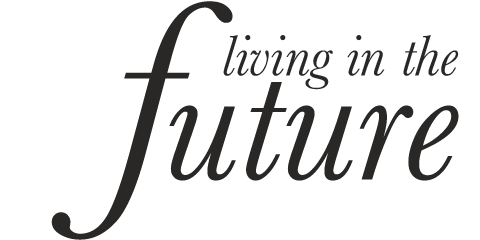Can we consider that Emily is a world that is perpetually self-colonizing?
There is music playing, kind of like the schmaltzy soundtrack from a great American movie of the past. In the adverts the Captain is always huge.
She wonders why this time he has a face that is melting and lumps all over his body and arms and a tiny bag on wheels and a greying t-shirt pockmarked with holes that says Beer Festival. He doesn’t even look like the Captain.
How can you colonize the dreamscape when its nature is immateriality?
As Emily, and vicariously, Kai thru Emily, cut a trajectory through the stax, they have some autonomy, control and agenda. The dreamscape is flux; events are broken into forgetting. Especially among the stax, the strongest constant is always forgetting. And yet Emily, through force of will, has learnt to mark certain points across the grid for returning.
Here, for example, if you focus closely on Emily’s eyes, as she is with the Captain, in the moment that she reveals them: as the shades reveal them, see the pupils dilate slightly; a look of almost imperceptible arrogance.
In texts, each distinct word represents a vortex. Each word, if appearing close to another: they are connected by an edge. The routes between these points are called songlines. To project into the same songline is to see not one thing the same; and yet the nature of the change is the continuity that allows for valuation and trade. For Emily, it has become a livelihood.
This more abstract process of the colonization of information, of the stax, is going on all the time, automatically. Emily, consciously and also unconsciously, is a progenitor of information collated in a perpetual state of transference.
She has so many questions. She is burning with questions; and yet he looks so pathetic that her mind is filled with doubts. They are both caught in the turgid silence between them, studying. She has been waiting for a long time to re-traverse this part of the grid. She has thought about it too much – the possible outcomes – and the hope is clouding her judgement.
What is the nature of the border between her mind and the worlds that she inhabits? If there is a borderline, is it permeable, or illusory, even?
Still, she says nothing.
Is it true, as the elves once told her, that she could be a world? If she is a world, can there be other worlds, other Emilys? Is she alone?
The Captain scratches at the rough stubble on his chin and yanks gingerly at the Beer Festival t-shirt. He looks bored, and bored with her especially. She can feel him leaving her. A little shudder of apprehension cuts into her heart.
How can a world be conscious? How can it not be!
Once again, he scratches at his chin. She thinks she can catch a slight smile in his eyes. Just as she thinks that she can hold her poise no longer, he opens his mouth and says this:
‘You know when you picture something in your mind, and then you look for it but it’s not in the place you’ve pictured – I don’t know if that ever happens to you? A kind of astral projection.’
And then he just turns around and waddles awkwardly away from her. The hem of his trousers is low, and she can see the dawning of the moon over his belt line.
Emily feels as if the whole of her reality has been crushed. Why did he choose to show himself to her in this form? Regardless of the people returning home from work around her, she sits down on the pavement and puts her sunglasses back on over her eyes.
There is one kind of a holographic memory that comes to her again and again, and now it comes, stronger and realer than it has ever come before. The smell is that of a strong, neutered burning. The environment is clean. Emily knows that she is in the Academy because on the wall has been painted a small logo. The logo is an irregular green five-sided shape next to an irregular black six-sided shape. There is no text; however, next to the logo, a short list has been written in biro. It reads:
People colonise because?
To get away.
To discover.
Emily knows this for the memory of the first time that she met Kai.
‘I don’t need to cover everything’, she is thinking. ‘That would be a mistake. Better to choose one small area and begin from there.’
As these thoughts occur to her, she can already feel him behind her. Lumps of grit are in her teeth and gums. Her teeth are grit.
She reaches for the soft fleshy skin above her right elbow and then remembers it is not there. She says:
‘Generic friend. I’m gonna shoot you.’
The reply comes, ‘Test! You’re just kidding.’
Spinning around, she says with all of her heart: ‘No. I’m shooting to kill.’
Llew Watkins is a multi-disciplinary artist and writer currently based in London who works in installation, lectures, scripts and performance. His practice is a continuing inquiry into the transient and playful nature of mind and reality.
